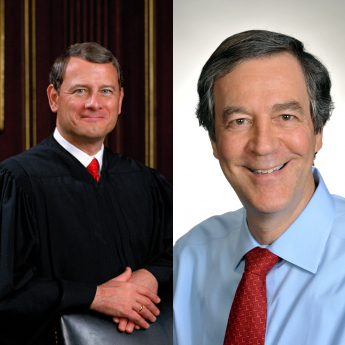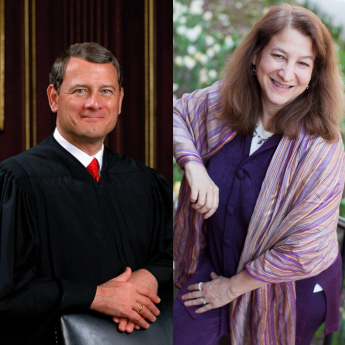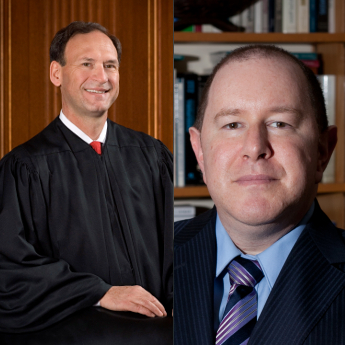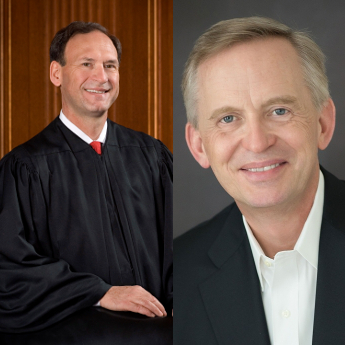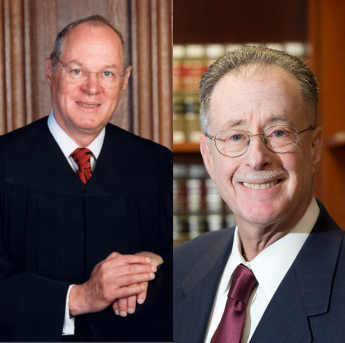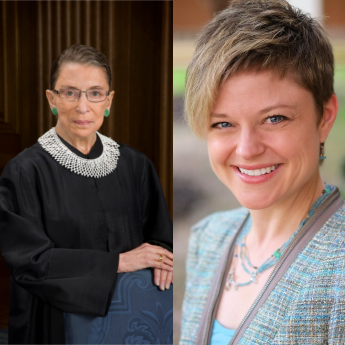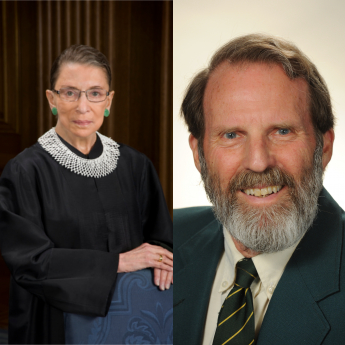Constitutional Acquiescence
Shalev Roisman 84 Geo. Wash. L. Rev. 668 When courts, scholars, and government decisionmakers debate constitutional separation of powers questions, they primarily analyze past branch practice to divine the answer. Yet, despite the long pedigree and widespread contemporary use of this method of constitutional interpretation, precisely how interpreters should look to past practice has remained... Read More
Constitutional Personhood
Zoë Robinson 84 Geo. Wash. L. Rev. 605 Over the past decade, in a variety of high-profile cases, the Supreme Court has grappled with difficult questions as to the constitutional personhood of a variety of claimants. Of most note are the recent corporate constitutional personhood claims that the protections of the First Amendment Speech and... Read More
Judicial Amendment of Statutes
Eric Fish 84 Geo. Wash. L. Rev. 563 When courts engage in judicial review they do not merely invalidate or “strike down” unconstitutional statutes. Instead, they rewrite such statutes in order to make them constitutionally valid. They can do this in a variety of ways—by deleting words from a statute, adding words to a statute,... Read More
United States Army Corps of Engineers v. Hawkes Co., Inc.: Navigating the Clean Water Act
United States Army Corps of Engineers v. Hawkes Co., Inc., 578 U.S. ___ (2016) (Roberts, C.J.). Response by Professor Robert L. Glicksman Geo. Wash. L. Rev. On the Docket (Oct. Term 2015) Slip Opinion | Politico | SCOTUSblog Navigating the Clean Water Act The Supreme Court held in United States Army Corps of Engineers v. Hawkes... Read More
Foster v. Chatman: E-Racing the White Jury’s Constitutional Veneer
Foster v. Chatman, 578 U.S. ___ (2016) (Roberts, C.J.). Response by Phyllis Goldfarb Geo. Wash. L. Rev. On the Docket (Oct. Term 2015) Slip Opinion | New York Times | SCOTUSblog E-Racing the White Jury’s Constitutional Veneer When Stephen Bright, a well-known capital defense attorney, began his oral argument before the Supreme Court in Foster v.... Read More
Spokeo, Inc. v. Robins: When Is a Person Harmed by a Privacy Violation?
Spokeo, Inc. v. Robins, 578 U.S. ___ (2016) (Alito, J.). Response by Daniel Solove Geo. Wash. L. Rev. On the Docket (Oct. Term 2015) Slip Opinion | New York Times | SCOTUSblog When Is a Person Harmed by a Privacy Violation? The U.S. Supreme Court just handed down a decision in an important case, Spokeo... Read More
Ocasio v. United States: The Contortionist Extortionist
Ocasio v. United States, 578 U.S. ___ (2016) (Alito, J.). Response by Professor Randall D. Eliason Geo. Wash. L. Rev. On the Docket (Oct. Term 2015) Slip Opinion | New York Times | SCOTUSblog The Contortionist Extortionist In criminal law, we ordinarily think of perpetrator and victim as two distinct entities. It would be nonsensical,... Read More
Molina-Martinez v. United States: When Guidelines Affect Substantive Rights
Molina-Martinez v. United States, 578 U.S. ___ (2016) (Kennedy, J.). Response by Professor Stephen A. Saltzburg Geo. Wash. L. Rev. Docket (Oct. Term 2015) Slip Opinion | New York Times | SCOTUSblog When Guidelines Affect Substantive Rights Saul Molina-Martinez pleaded guilty to being unlawfully present in the United States after having been deported following an... Read More
Hughes v. Talen Energy Marketing, LLC: Energy Law’s Jurisdictional Boundaries – Take Three
Hughes v. Talen Energy Marketing, LLC, 578 U.S. ___ (2016) (Ginsburg, J.). Response by Professor Emily Hammond Geo. Wash. L. Rev. Docket (Oct. Term 2015) Slip Opinion | SCOTUSblog Energy Law’s Jurisdictional Boundaries – Take Three The Supreme Court has been extremely active in policing energy law’s jurisdictional boundaries, issuing three opinions on the... Read More
Bank Markazi v. Peterson – Equity and Justice versus the Separation of Powers
Bank Markazi v. Peterson, 578 U.S. ___ (2016) (Ginsburg, J.). Response by Dean Alan Morrison Geo. Wash. L. Rev. Docket (Oct. Term 2015) Slip Opinion | New York Times | SCOTUSblog Equity and Justice versus the Separation of Powers When the Supreme Court held oral argument on January 13, 2016 in Bank Markazi v.... Read More

